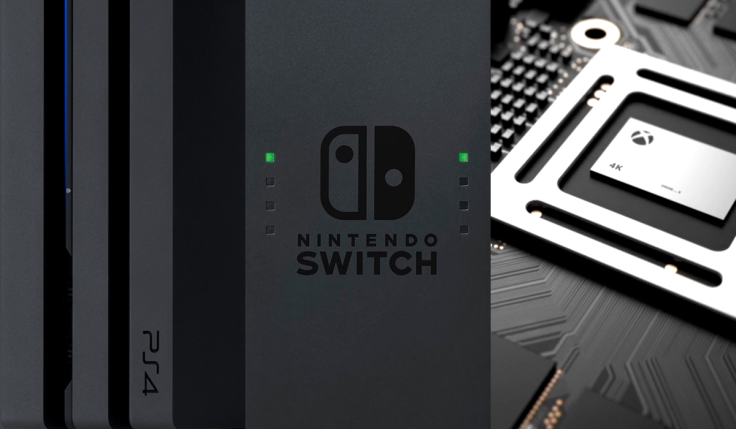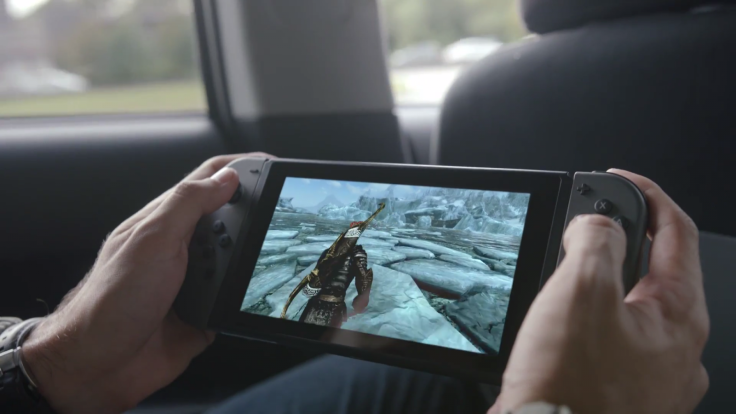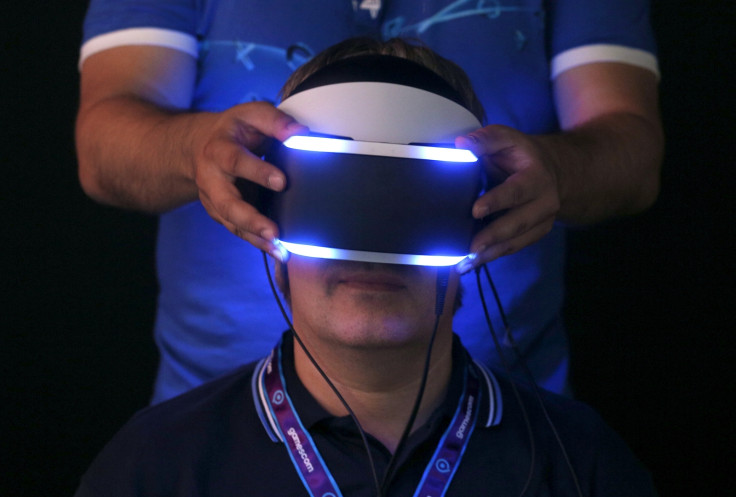Sony, Microsoft, Nintendo: Which video game giant will have the most successful 2017?
A look at how the big three will handle new consoles, upgraded hardware and maintaining sales dominance.

From whatever angle you look at it, 2016 proved to be one of the most eventful years in recent history. In the world of games, however, it may turn out to have been a mere precursor to an even more remarkable 2017.
The last 12 months have seen new hardware and key exclusives pull in pools of gamers who had yet to upgrade to either PS4 or Xbox One, all while Nintendo effectively laid the groundwork for what will be the company's most important product launch for a decade.
It all means 2017 is going to play host to some major shifting of plates, and the momentum that's powered Sony, Microsoft and Nintendo during this console generation to date could alter radically.
If 2016 is any indicator, the year ahead should well and truly dispell any notion that the PS4 already has this one in the bag.
Nintendo
In 2016, Nintendo gave up on Wii U wholesale, and the console will end its life as the lowest selling in the company's great history. In its place comes Nintendo Switch, which would be the company's prime concern in 2017.
For the optimists, it's the perfect example of Nintendo's ingenuity and would combine the company's prowess for handheld games with a home console capable of playing host to big brands such as Call of Duty and FIFA. For the pessimists, it's an awkward halfway house that offers people the ability to play big, blockbuster games better suited to the living room on the go – a trick that the masses simply haven't been calling for.
The smart money suggests Switch's debut would fall somewhere between the two. Millions of formerly dedicated Nintendo fans, who decided to skip Wii U, should come back to the fold with Switch, meaning that a strong launch is likely. However, Switch hasn't yet had a 'Wii moment'. While Nintendo's record-selling console broke down barriers with a motion-sensing controller, Switch's portable play feels comparatively gimmicky and would be a harder sell beyond the company's core base.

The long and short of it is, of the big three players, Nintendo's 2017 looks the most uncertain because it's the only one offering something new and different, and is taking the biggest risks.
All that can be said for certain is Nintendo has a lot of games set to support the Switch this year. The Legend of Zelda: Breath of the Wild is the only known quantity for now (until 13 January's reveal event, at least) but many other games are rumoured.
If the Pokémon Sun and Moon follow-up Pokémon Stars rumoured to be in development can tap into the franchise's audiences on 3DS and mobile respectively, Switch can make some major ground up on its rivals with that game alone, at least in the short term.
Microsoft
If nothing else, 2016 was the year Microsoft won back the respect it lost with gamers during the debacle that was Xbox One's launch three years ago.
Almost out of nowhere, the Xbox One S has repositioned the console from being an enormous black behemoth to a slick, sleek piece of design that makes even the retooled PS4s look like Tomy toys in comparison.
Sales shot up massively – by no less than 1,000% in the UK on launch week – but the boost the console has given the Xbox brand is of most note. Xbox One S has laid foundations for Microsoft to, potentially, enjoy a strong 2017, all gearing towards the launch of Project Scorpio towards the end of the year.
Xbox One's future rests on Microsoft's ability to communicate just what Scorpio is. Its name, its design, its price, how it implements VR, and the strength of its marketing will all be crucial factors. Thus it could be argued Microsoft was wise to let Sony launch PS4 Pro first, helping consumers get used to the idea of mid-cycle upgrades rather than fighting the good fight on its own.

Scorpio, however, is already being pitched as a greater leap than PS4 Pro – a tactic that makes sense given Xbox One's existing install base is roughly half of that of PS4. Microsoft, in short, has far less to lose and far more to gain.
Software wise, Microsoft has lined up a mixture of existing, bankable IP and rather riskier new franchises. In 2016, fortunes were mixed, with the much-hyped Quantum Break failing to find a big enough audience, while Forza Horizon 3 surprised many by proving to be Xbox's big Christmas hit.
This year, the likes of Halo Wars 2 and the long-awaited Crackdown 3 will tap into established fanbases, while Rare's Sea of Thieves and Platinum's Scalebound should both bring some colour to the console's line-up. Like PS4, when it comes to games it's essentially business as usual.
Scorpio's potential goes beyond how many units it shifts, to the influence it can have on the Xbox brand. Like the intentionally over-priced Elite controller, Scorpio is as much about pitching the Xbox One family as a premium product as it is about actually generating sales.
PS4's perceived extra power has hung over Xbox One since day one, and it's a disadvantage MS will be keen to and able to wipe out in 2017. It's unlikely doing so would turn the tide this far into the console generation, of course, but Scorpio nevertheless represents a bold new confidence from the Redmond giant.
Sony
It's hard to argue the idea that in 2016 PS4 remained firmly in control. Over Christmas alone, Sony sold more than six million PS4s, taking its global total past the 50 million mark. Nevertheless, the console still encountered some hefty bumps in the road that will offer hope to its competitors.
When it comes to software, Hello Games' No Man's Sky proved to be a defining moment for PS4 in 2016 for reasons both good and bad.
Sony's decision to highly publicise an indie title that, ordinarily, might have gone unnoticed was understandable. Come launch in August, however, it's no exaggeration to suggest that No Man's Sky fast became poison, and Sony was quick to both distance itself from the game and criticise a marketing campaign it had largely been responsible for. In the end, Uncharted 4: A Thief's End proved to be PS4's biggest exclusive in 2016, undoubtedly shifting a fair amount of hardware with it.

PS4's 2017 line-up may well have a similar impact. Horizon: Zero Dawn at the start of 2017, and Shenmue 3 possibly at year-end, could and should be tentpoles that support the console's position as the gamer's choice throughout the year.
On the hardware front, however, 2017 is looking a little barren. PS4 Pro appears to be off to a strong start, but Sony's decision to launch both an upgraded PS4 and a VR headset in 2016 appears a touch shortsighted. PS4 ended the year as the best selling console in all the regions that mattered, but that's a milestone it would have achieved without the launch of PS4 Pro or PlayStation VR. The notion that Sony has played both cards way too soon may gain traction if PS4 sales dip in 2017.
If PS4 is to remain dominant, it would depend not on Sony's own tactics, but rather on what rival Microsoft does. Just how powerful will Xbox One's Project Scorpio be? How much will it cost? How effectively will Microsoft be able to communicate what it offers, and what impact will it have at retail?
If Microsoft falters even slightly with Scorpio, PS4 will remain the dominant force in 2017. If it can build any kind of momentum pre and post-launch, however, it's difficult to see how Sony can respond. For all three, the game is very much on.
For all the latest video game news follow us on Twitter @IBTGamesUK
© Copyright IBTimes 2025. All rights reserved.






















